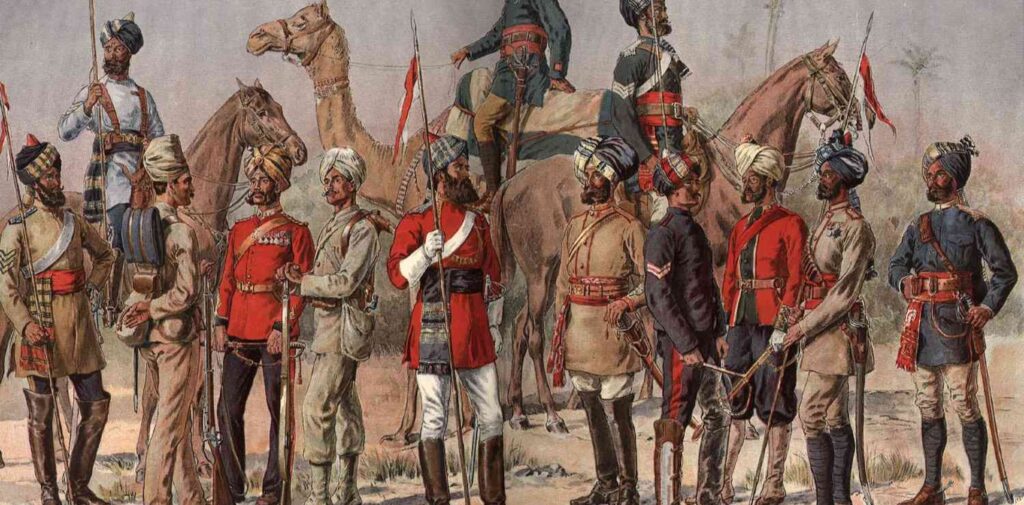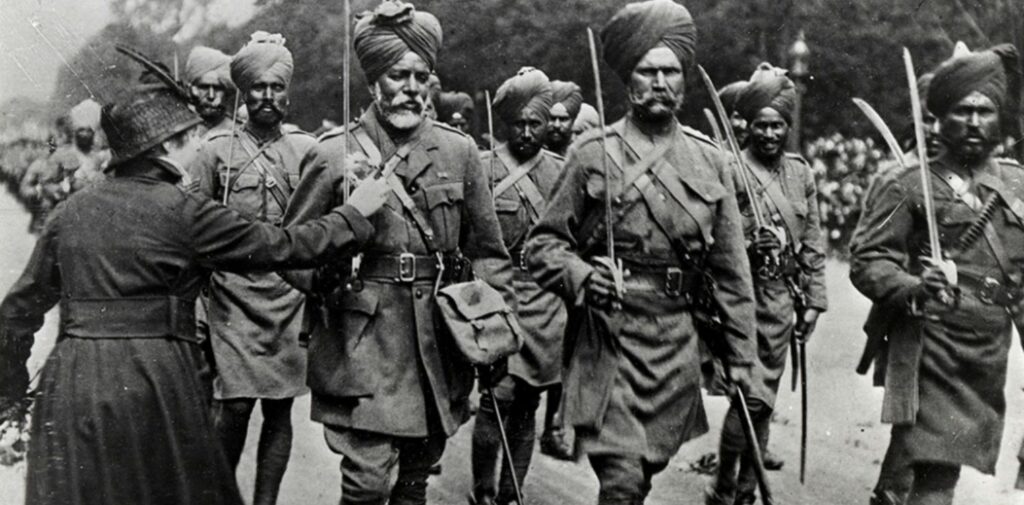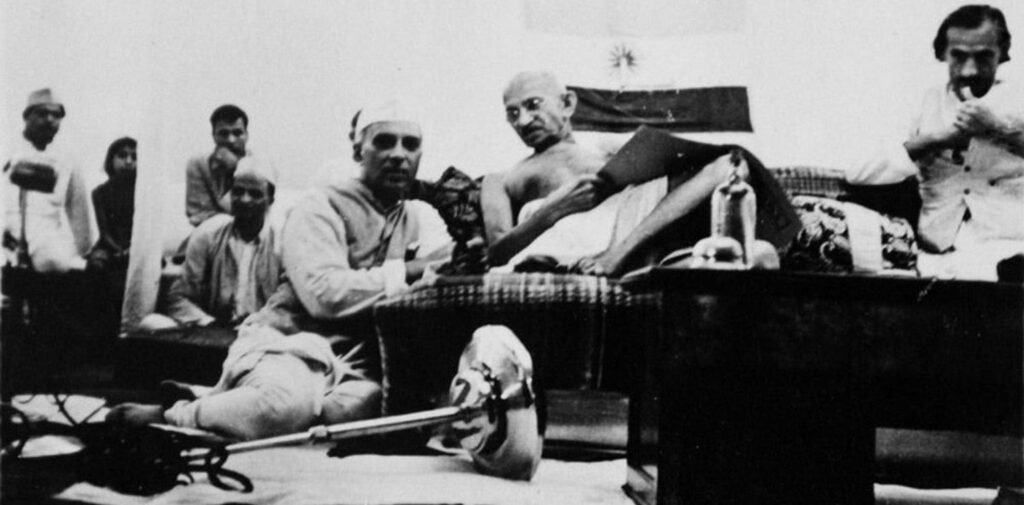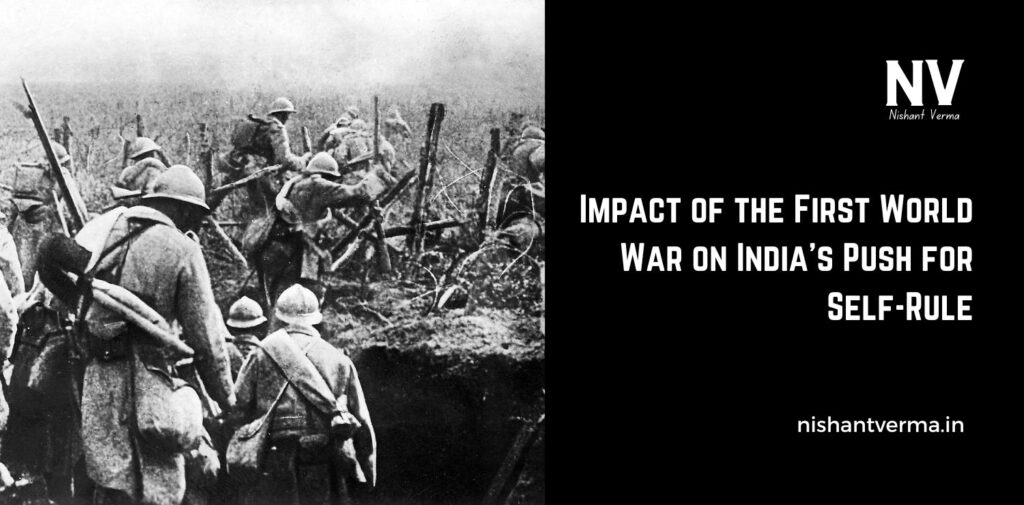The First World War (1914-1918) was a huge event in world history. It involved many countries across the world, including Britain, which ruled over India at that time. The war had a big impact on India, especially in the way Indians started to think about their future. Before the war, India was under British control, and most Indians had no say in how the country was run. But after the war, things began to change. Indians started to demand more freedom and rights, and this eventually led to the country gaining independence in 1947.
India and the British Empire Before the War
Before World War I, India was a part of the British Empire. This means that Britain controlled India’s government, economy, and military. Indians had very little power to make decisions about their own country. They were treated as second-class citizens in their land, and British officials made all important decisions. Most Indians were unhappy with this, but they didn’t have much power to change anything.
India was also an important colony for Britain. It was rich in resources like cotton, spices, tea, and minerals, which Britain used to make goods. India provided raw materials and was a market for British products. So, the British depended on India for their wealth.

The Outbreak of the First World War
In 1914, the First World War broke out. Many European countries, including Britain, were involved in the war. Although India was under British rule, the British expected Indians to help them fight. The British needed soldiers, money, and supplies for the war. They hoped that by involving India in the war, they would gain support from the Indian people and show that India was loyal to the British Empire.
Millions of Indian soldiers were sent to fight in the war, and many died in battles far away from home. At the same time, India also provided money, food, and resources to support the war effort. However, despite all of this support, India did not gain any recognition or say in important decisions. The British government promised that after the war, they would give more self-rule to India, but many Indians started to feel that the British had only used them for their benefit.
The Changing Attitude of Indians
During the war, many Indians began to realize that the British were not treating them fairly. While Indian soldiers and workers were sacrificing a lot, the British did not change their attitude toward Indian self-rule. Indians started to demand more rights, and this led to the beginning of a more serious push for independence.
The war also affected the economy of India. The British needed money for the war, so they raised taxes in India. This made life harder for the Indian people, especially the poor. Many farmers struggled because the prices of their crops were low, but the taxes were high. There were also shortages of food and goods because so much of India’s resources were being sent to Britain. This caused frustration and anger among the people of India.

The Role of Leaders in the Push for Self-Rule
As more and more Indians became unhappy with British rule, leaders began to speak out. Some of these leaders had been quietly working for self-rule for years, but the war allowed them to speak louder. One of the most important leaders during this time was Mahatma Gandhi, who would later lead India to independence.
Although Gandhi had been in South Africa fighting for the rights of Indians there, he returned to India in 1915, just after the war ended. Gandhi believed in peaceful resistance or non-violence, and he quickly became the leader of the Indian independence movement. He encouraged people to protest in a peaceful way, using methods like boycotting British goods and refusing to pay unfair taxes. Gandhi’s ideas inspired millions of Indians, and his message of non-violence became very popular.
Another important leader was Jawaharlal Nehru, who would later become India’s first Prime Minister. Nehru, like Gandhi, was determined to see India free from British rule. He believed that the country needed to modernize and improve education, industry, and agriculture in order to be truly independent.
The Jallianwala Bagh Massacre
One of the most shocking events that happened during this time was the Jallianwala Bagh massacre. In 1919, a large crowd of Indians gathered in Amritsar, in the northern part of India, to protest against British rule. The British officer, General Dyer, ordered his soldiers to fire on the crowd without warning. Hundreds of people were killed, and thousands were injured. This massacre deeply shocked the Indian people and turned many of them against the British.
After this event, more and more Indians began to demand independence. The British had promised more self-rule after the war, but they had done little to follow through on their promises. This led to even greater frustration and anger across India. People were ready to stand up and fight for their freedom.
The Montagu-Chelmsford Reforms
In response to growing anger, the British government introduced some reforms in 1919, known as the Montagu-Chelmsford Reforms. These reforms were supposed to give Indians more power in their government. However, many Indians felt that the reforms did not go far enough. The British kept most of the important decisions in their own hands and did not give Indians full control over their country.
Despite the limited nature of the reforms, they were a step toward self-rule. They gave Indians the right to elect their own representatives to a limited degree. This gave the Indian people hope that they could eventually gain more control over their own country.

The Rise of Mass Movements for Independence
After World War I, there was a rise in mass movements for independence. The idea of non-violent protests, led by leaders like Gandhi, spread across the country. People started to participate in activities like the Non-Cooperation Movement (1920-1922), where they refused to work with the British or buy British goods. This hurt the British economy and showed that the Indians were serious about wanting independence.
Gandhi’s idea of civil disobedience—peacefully breaking laws to show resistance—became a major way to fight for freedom. This led to many protests and marches across India, including the famous Salt March of 1930, where Gandhi and his followers marched to the sea to make their own salt, defying British laws.
Conclusion
The First World War had a huge impact on India’s push for self-rule. It changed the way many Indians thought about their country and their future. The sacrifices made by Indian soldiers during the war, the hardships faced by the Indian people, and the promises made by the British all led to greater demands for independence.
Though India did not gain independence immediately after the war, the events that followed the war set the stage for the country’s eventual freedom in 1947. The leaders who rose during this time, like Gandhi, Nehru, and many others, played a key role in inspiring millions of Indians to stand up for their rights. The First World War, in many ways, opened the door for India’s independence movement, making it stronger and more united in its fight for freedom.




